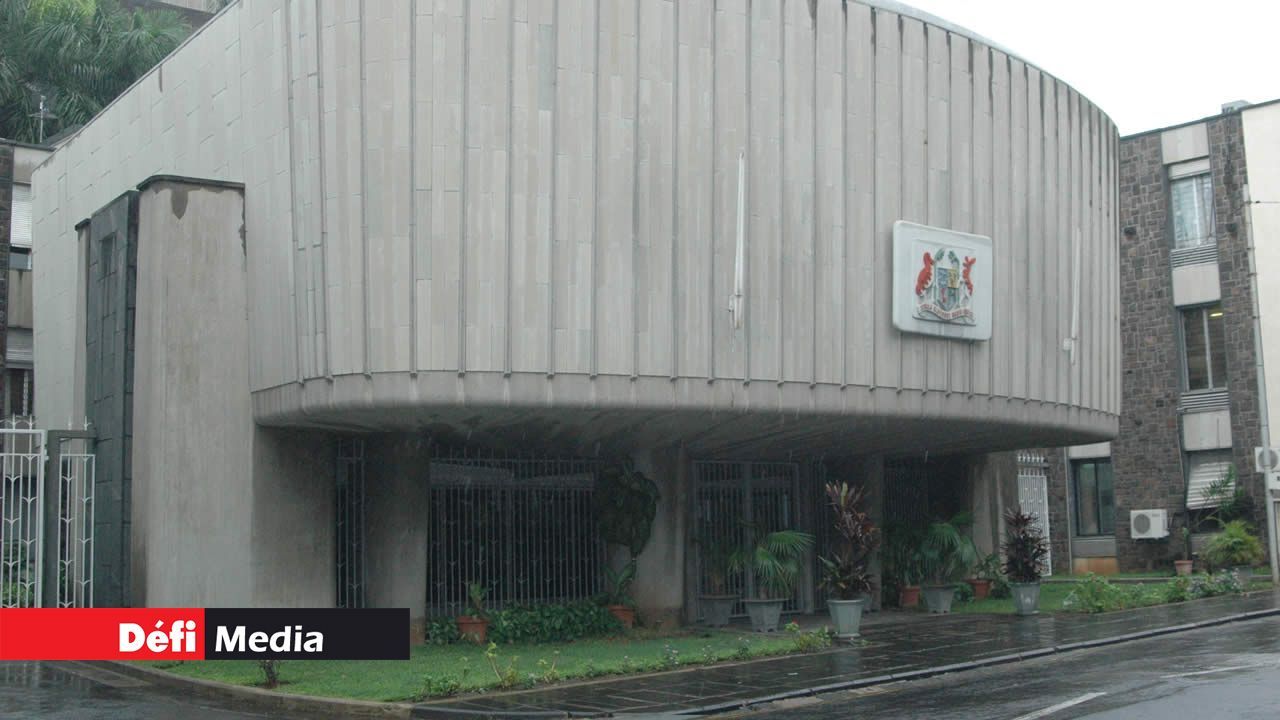
A report entitled "The cost of Parliamentary Politics in Mauritius”, written by Roukaya Kasenally and Ramola Ramtohul of the University of Mauritius(UOM), was issued in September 2020 under the umbrella of the Westminster Foundation for Democracy(WFD).
The WFD is a public body, funded by the UK government and dedicated to support democracy around the world.WFD works with parliamentarians, political parties, civil society groups to help make the political systems fairer, more inclusive and accountable. It operates in over 40 countries.
Mauritius should welcome the opportunity of working with the WFD experts to develop tools and comparative studies on democracy and governance issues.
The Kasenally/Ramtohul report contains a factual account of the practices of our political parties over the years and the gradual evolution of the democratic norms in the conduct of elections with a focus on election costs and money politics. It also contains a survey of candidates of the main and small parties to get an insight into what happens before, during and after an election. They were unanimous in qualifying the 2019 general election as the most expensive one.
The good thing is that the report was discussed at a webinar organised under the aegis of the UOM recently. Interesting issues and questions were raised:
• Power of money at elections
• What would be the profile of our Parliament in the future?
• When will the long awaited electoral reforms and financing of parties be debated and approved by Parliament?
• Responsibility of citizens to prevent a degradation of our democratic society.
Democracy Watch has issued a number of bulletins on all these issues and has made many recommendations to the different governments on the need to work with all stakeholders to get rid of the corrupt practices, modernize our legislation and establish truly democratic systems for the selection of candidates by political parties and the election of Parliamentarians by the voters. What is the price for doing nothing? Are we already reaping a decadent system?
To illustrate our point on decadence, one of the issues which stuck us in the report was the bargaining price of a vote. "In the 2019 election the asking price for a vote could vary from Rs 5,000 to Rs 10,000.Some voters were given the money after showing a picture of their vote taken on their mobile phone.”No Mauritian would be pleased to hear that. Do we give way to the sophistication of immoral practices or ask our institutions to act now? Will the government, the Electoral supervisory commission, the political parties hear the alarm bell and be proactive.?
Democracy Watch welcomes the partnership with WFD, but makes a plea for like-minded organisations to network among themselves and firm up our views and speak for Mauritius with a stronger voice. Now is the time for electoral reforms after what we have seen in our own country and very recently in the United States where, despite the imperfection of its electoral system which needs to be addressed, has democratically elected Joe Biden as President and Kamala Harris, a black woman of Jamaican and Indian origin, as the first woman Vice-President of the USA.
----------------------------------------------------------
LES DROITS DE LA DIASPORA MAURICIENNE
Texte: ‘La diaspora réclame son droit de vote. La diaspora mauricienne réunit ses forces pour avoir son mot à dire sur la gestion du pays’ (H.Citta, C.Narsinghen, S Jhugroo, A. Mounier, Le Dimanche/Hebdo, 8.11.2020)
La force numérique des émigrés Mauriciens est estimée (sans compter leurs enfants) à plus de 188, 000. Un décompte possible est le suivant, selon Le Dimanche/Hebdo du 8 novembre 2020 : Canada 16,000 ; France 49,000 ; GB 48,000 ; Italie 9,000 ; Afrique du Sud 14,000 ; Australie 31,000 ; autres environs 15,000 à 20,000.
La Mauritius Diaspora Scheme de 2015 qui proposait des vacances fiscale et achat de véhicules hors taxe ‘n’attira pas grand monde’ car très restreint (F. Macky, 8.11.2020)
Commentaires : Une proposition concrète de Michael Atchia, basée sur le très réussi Overseas Citizen of India et son OCI Card, fut déjà publier mais sans suite. Le temps est venu de revoir cette proposition, reproduite ci dessous dans sa version originale, qui s’aurait comme son modèle Indien, attirer non seulement les émigrées mais leurs descendants. Mais reste le droit de vote : voyez ces citoyens des Etats Unies, d’Australie et de la France établi a l’étranger qui retiennent et exercent leur droit de vote. Pourquoi pas nous?
OCM : A new idea, Overseas Citizen of Mauritius
Introduction: Three factors make this proposal strongly relevant: Three factors make this proposal strongly relevant:
1. General reduction of Mauritian population and consequent difficulty to find workers, technicians, entrepreneurs, investors and generally qualified professionals for our development,
2. The much better value we can get as a nation with the contributions of returning Mauritians/their children grand children, spouse and family instead of say migrant workers from Bangladesh/Madagascar/Nigeria etc
3. The recognition of the rights of those Mauritians who left in the 60s, 70s, even before, to come back under a smooth facilitation scheme as proposed under OCM.
The idea is, of course, based on the existing Indian system of Overseas Citizen of India, the OCI Card, which allows People of Indian Origin (PIOs) born or living outside India, to acquire this visa. The OCI CARD is neither a passport nor a certificate granting citizenship to the applicant, but is very attractive and offers to holders many advantages and benefits.
In the case of India, their card provides a lifelong visa to the holders, sparing them the need for permits. OCI holders are treated on par with NRIs for economic, financial and educational matters BUT they do not acquire political rights; i.e. to vote or hold public office (an OCI holder cannot stand for elections, becomes an MP, or PM or be elected as President of India). Also they do not have rights to buy agricultural and plantation properties
An OCI card holder can purchase immovable property in India barring agricultural land, plantation property and farmhouses. (But it is to be noted that other people such as NON-RESIDENT INDIAN CITIZENS NRI or a PIO or foreign national of non-Indian origin (OCI) can also hold immovable property acquired by way of inheritance).
The advantages offered has stimulated huge number of the more well-to-do PIOs living in the US, UK, CANADA, AUSTRALIA and elsewhere TO APPLY AND OBTAIN SUCH A VISA. And for India this has meant a huge flow of capital from these foreign countries to India, mainly for the purchase of property, setting up business or simply for living expenses. The returning Diaspora also brings back new technologies and invaluable business, IT and industrial experience.
In practice, most OCI holders go back to India occasionally or regularly, EVEN often, as the case may be, but MOST retain fully their homes, jobs, retirement, health coverage etc in their country of immigration(for example the US). None are in any way required to renounce their new nationality (e.g. British /Canadian etc). If that had been the case, very few would have applied for the OCI visa and card.
Many OCI are also very demanding in terms of cleanliness of living areas, roads, services, politeness, efficiency and prompt service etc often lacking in India AND therefore help improve quality of life in India. In certain city centres or areas of great beauty(e.g. Simla, Darjeeling etc) the large number of OCI wishing to buy property have also caused house prices to rise. In all case they have given a boost to housing development.
OCM: A new Overseas Citizen of Mauritius Visa, as proposed, may be of great interest to people born and are now living in UK, France, Belgium, Italy, Switzerland, South Africa, Australia, Canada, India, and Malaysia and so on and who have a parent or grandparent of Mauritian origin, BY DECENT OR MARRIAGE.
What advantages for MAURITIUS?
What advantages for these foreign citizens?
A new law: Clearly well settled for example in Australia, the potential OCM certainly will continue his or her life as a full Australian citizen, with all the rights and duties. But in view of having one ancestor who came from MAURITIUS, the potential OCM can now contemplate a new opening in life: i.e. travel to MRU without visa, stay as long as he /she likes, work or study or acquire property etc in MAURITIUS, while REMAINING fully an Australian.
By way of a new law: Obviously a new legal framework must be developed and through an Act of Parliament a new law passed to define OCM and its parameters. From a limited survey conducted this arrangement will satisfy many of our citizens now ageing overseas and likely to interest their descendants in such divers places as Australia, South Africa, UK, France, Belgium, Hong Kong, India, USA, Canada, Kenya etc. ( Dr M. Atchia, Avril, 2018)
Democracy Watch Mauritius
Bulletin du 11 novembre 2020
Publicité

Notre service WhatsApp. Vous êtes témoins d`un événement d`actualité ou d`une scène insolite? Envoyez-nous vos photos ou vidéos sur le 5 259 82 00 !
















![[Pran Kont] Témoignages de résilience : le combat contre le cancer](https://defimedia.info/sites/default/files/styles/square_thumbnail/public/untitled_design_2_138.jpg?itok=P0ZbXslh)




